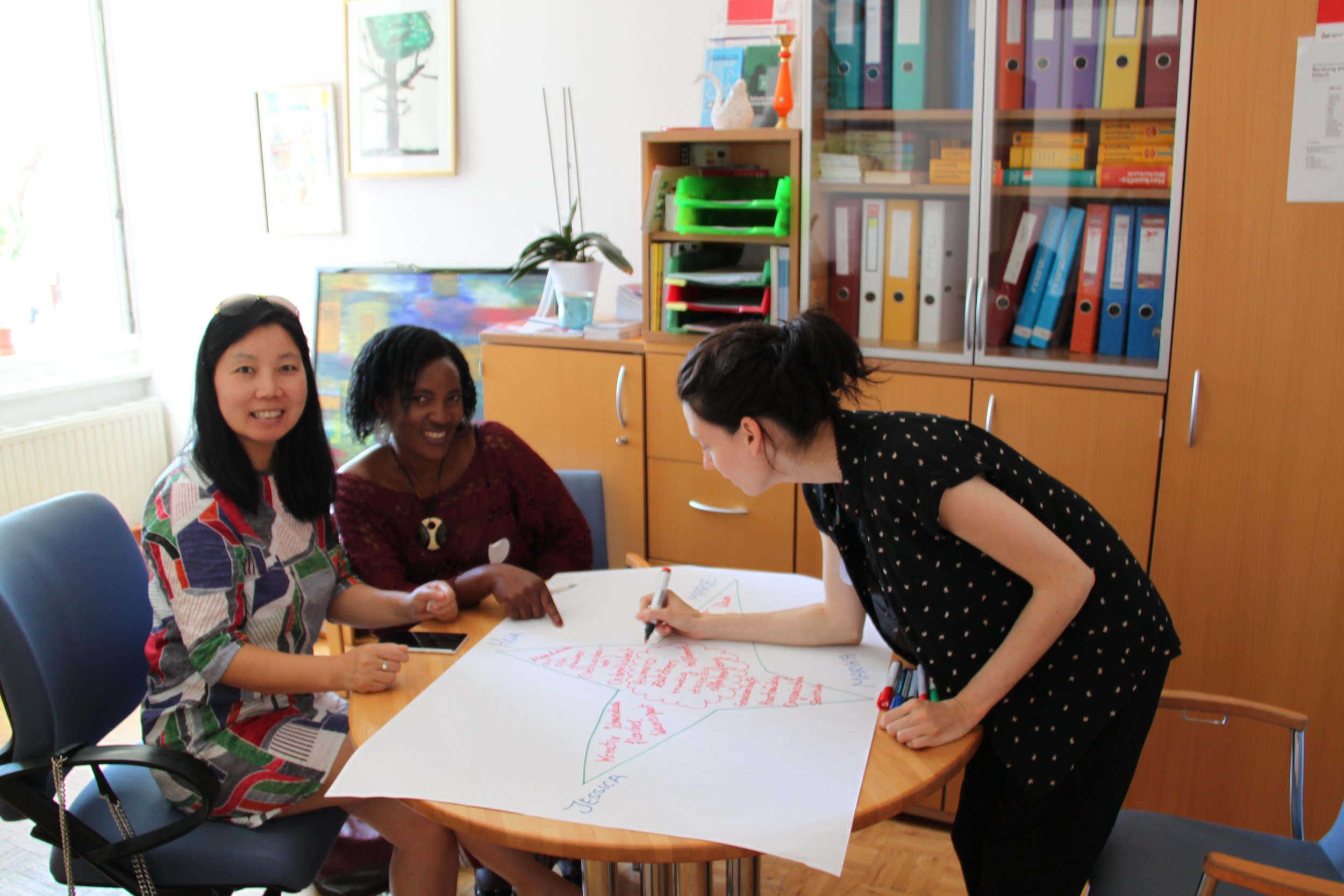What is In Loco?
In Loco is piloting a new, participatory model for integration in Europe, reshaping practices and policies for newcomers. This model centres community engagement, ensuring local policies are based on real needs.
In Loco's stakeholder engagement model uses real, on-the-ground data to understand the needs, risks, and opportunities within each community, ensuring integration policies both reflect and effectively respond to them.
Launched in 2024 and coordinated by Second Tree, this 3-year project brings together a diverse network of 16 partners, 7 associated partners, 6 municipalities, and 4 academic institutions from 11 European countries.
We believe that meaningful collaboration is key to growing community! When newcomers and locals are actively engaged, inclusive, cohesive, and prosperous communities are formed.
For these reasons, In Loco includes:
Migrant-Led Research
We're listening to the experiences of migrants across all project countries.
Training For Change
We're sharing new ways to improve integration work by using innovative methodologies.
Local Action
We're turning ideas into action by forming Task Forces that craft policies rooted in real needs and evidence.
Our Methodology
We combine training, research, and action—working locally with partners through Task Forces to drive tangible change, and internationally with scholars and refugee researchers.
Refugee-Led
Research
40 refugees will be trained to conduct interviews with 200 newcomers, analyse data, and develop research with support from In Loco’s Academic Committee. Their insights will help shape policy recommendations on the best integration practices, based on the experiences of newcomers across the EU.
Training
Sessions
At the local level, the local and rural task forces will participate in three different training sessions: Community engagement, Cultural Mediation, and Participatory Police Design.
Experts from Second Tree will challenge the way we see the "migrant myth," helping us approach challenges from a different perspective. They will show us how to work with newcomers as independent, self-reliant partners, building relationships based on trust, fairness, and shared commitment. Building on this, Comparte training will help us turn these connections into strong, effective teams, using creative problem-solving to spark new ideas and solutions.
Direct
Actions
Everything starts by bringing together different voices. Our implementation territories will benefit from a three-stage collaborative process:
Creating Rural and Local Task Forces: We will create task forces comprised of migrant communities, civil society organisations (CSOs), local authorities, academic institutions, and the private sector.
Designing Action Plans: Task forces will collaboratively design action plans tailored to each territory's specific needs.
Implementing Action Plans: We will implement these action plans, putting solutions into practice on the ground.
Our
approach
In Loco's work is founded on the belief that everyone is capable, approachable, reasonable, and equal. By starting with this mindset, we help everyone trust each other—newcomers, institutions, and communities—so we can grow stronger together. Our approach prioritises:
Improved Governance
Strengthening institutions to effectively address local needs.
Individual
Agency
Enabling newcomer participation in community life through cultural mediation and self-advocacy.
Our key
values
The resulting mutual reinforcement of trust in institutions and in newcomers fosters the foundations for community development:
Civic
Inclusion
Encouraging more opportunities to shape decisions, a sense of belonging, and an open and shared culture.
Prosperous
Communities
Ensuring better livelihoods and supporting shared growth and accountability.
Social
Cohesion
Developing better integration policies, a sense of safety, and mutual responsibility.







